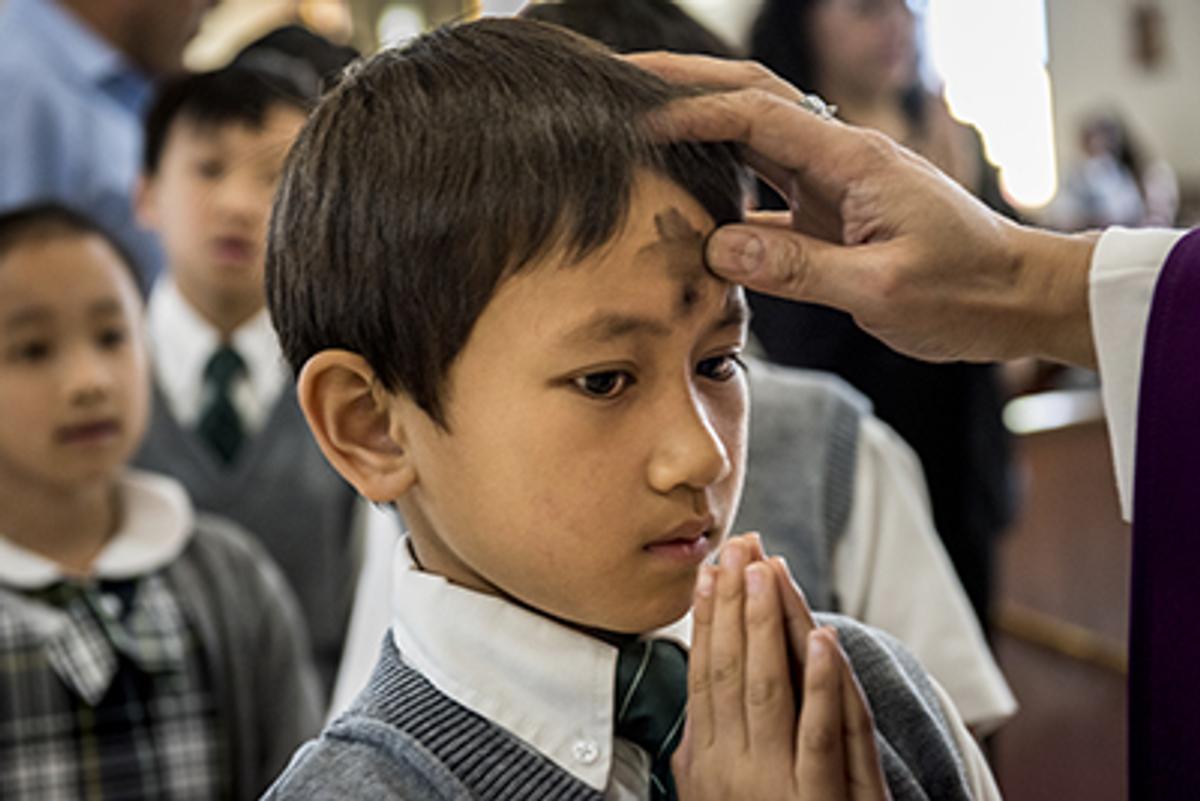Religious Education
Marylene Douglas
All students attending St Louis de Montfort's Aspendale have the right to feel safe. The care, safety and wellbeing of children and young people is a fundamental responsibility of all within our school.

Religious Education
Marylene Douglas
All students attending St Louis de Montfort's Aspendale have the right to feel safe. The care, safety and wellbeing of children and young people is a fundamental responsibility of all within our school.
Apologies to those families who had planned to join us last Tuesday for our Beginning of School Mass, unfortunately we were not able to go ahead with our mass then, so we will be celebrating our Beginning of School Mass this Tuesday 13th February where teachers will be commissioned and Year 6 Students will recieve their blessed leadership badges. Hopefully parents will still be able to join us on Tuesday at 9.15am in the school Hall.


After mass, we celebrate Shrove Tuesday. Students who have ordered pancakes will be able to enjoy a pancake with one of their favourite toppings and will learn about the significance of pancakes on Shrove Tuesday.
Shrove Tuesday, is the traditional feast day before the start of Lent on Ash Wednesday. Lent – the 40 days leading up to Easter – was traditionally a time of fasting and on Shrove Tuesday, Anglo-Saxon Christians went to confession and were “shriven” (absolved from their sins). A bell would be rung to call people to confession. This came to be called the “Pancake Bell” and is still rung today in some parishes in Europe.
Shrove Tuesday always falls 47 days before Easter Sunday, so the date varies from year to year and falls between 3rd February and 9th March. This year, Shrove Tuesday falls on 13th February. Shrove Tuesday was the last opportunity to use up eggs and fats before embarking on the Lenten fast and pancakes were the perfect way of using up these ingredients.


The day following Shrove Tuesday is Ash Wednesday, a very solemn day in the church's calendar.
Ash Wednesday starts the Lenten season.
It marks the first day of the 40 days of Lent, a 6-week period (not including Sundays) dedicated to prayer, fasting and almsgiving in preparation for Easter.
Ashes are marked on our foreheads as a symbol of our belief in Christ, his sacrifice and resurrection to new life in which we will all share.
The ashes come from palms that were burned from the previous Palm Sunday—the Sunday before Easter. Palm Sunday marks Jesus’ triumphal entry into Jerusalem, where people waved palm branches to celebrate his arrival. The ashes are typically mixed with holy water or oil.
The ashes serve as a reminder of humans’ sinfulness and need for reconciliation. The person distributing the ashes usually says, “Repent and believe in the Gospel” "Turn away from sin and be faithful to the Gospel" or "Make a new beginning for Jesus." The ashes are worn throughout the day as a public expression of our faith.
The ashes on our foreheads mark the beginning of our journey through Lent. This quieter time is a time to reflect on Jesus’s life and suffering and the ways he continually showed compassion to those around him. It’s also a time to reflect on our own lives and the lives of all in our human family and the rest of creation. Lent is a perfect time to reflect on it all: life’s good bits and life’s quiet, difficult, challenging bits. We can ask: what experience or situation makes me want to celebrate? What makes me want to cry? What moves me to compassion? What actions will I take to make a difference – in my own life? in the lives of other people? in the living creation? Fasting, Almsgiving and Prayer can help us to reflect. Many Catholics choose to 'Fast' from certain foods or activities as a symbol of sacrifice in honour of Jesus' ulitmate sacrifice. Almsgiving - doing good deeds for others is another focus during Lent as well as spending more time in Prayer.
Catholics abstain from meat on Ash Wednesday. In the past Catholics were also required to abstain from meat on Fridays during Lent, but I was told this was introduced to boost the Fish'n'Chip industry. I know of many people who still enjoy Fish'n'Chips on a Friday!
The Year 3 to Year 6 students will be attending mass on Ash Wednesday at 11.35am in the church. The Year1 and Year 2 students will pray together in their classrooms where they will receive the ashes.


Once again, Caritas Australia’s Project Compassion theme is For All Future Generations. It is about hope and reminds us that the good we do today impacts the lives of people tomorrow.
This year, For all Future Generations is inspired by the story of Moses and the burning bush in the book of Exodus.3 Called by God, Moses dared to face his challenges to make a difference in the lives of the people around him.
Project Compassion 2024 shares stories of three women from the Philippines, Malawi and Samoa. Though they face very different challenges in their day-to-day lives, they are all united by their dream of creating a better tomorrow for themselves and for all future generations
During Lent, our challenge is to respond to these stories courageously, with a yes to God’s call to us all, to act for social and ecological justice
Project Compassion is a timely reminder during Lent that by putting our faith and compassion in action today, we have the power to create lasting change for generations to come.
On Wednesday, students will be bringing home a Project Compassion Box in which we ask that you can fill will small change throughout the 6 weeks of Lent. All donations will be sent to Caritas to contribute to the amazing work they do.
Donations can also be made online by following the instructions on this link.
Let us pray for the work of Caritas Australia, that through our support of Project Compassion, Caritas can work together with communities around the world, providing them with the skills needed to create a future they deserve.
We also pray for our brothers and sisters who experience poverty and injustice, that we may act in solidarity to end injustices around the world – today and every day, for now and for all future generations.
We pray to the Lord.